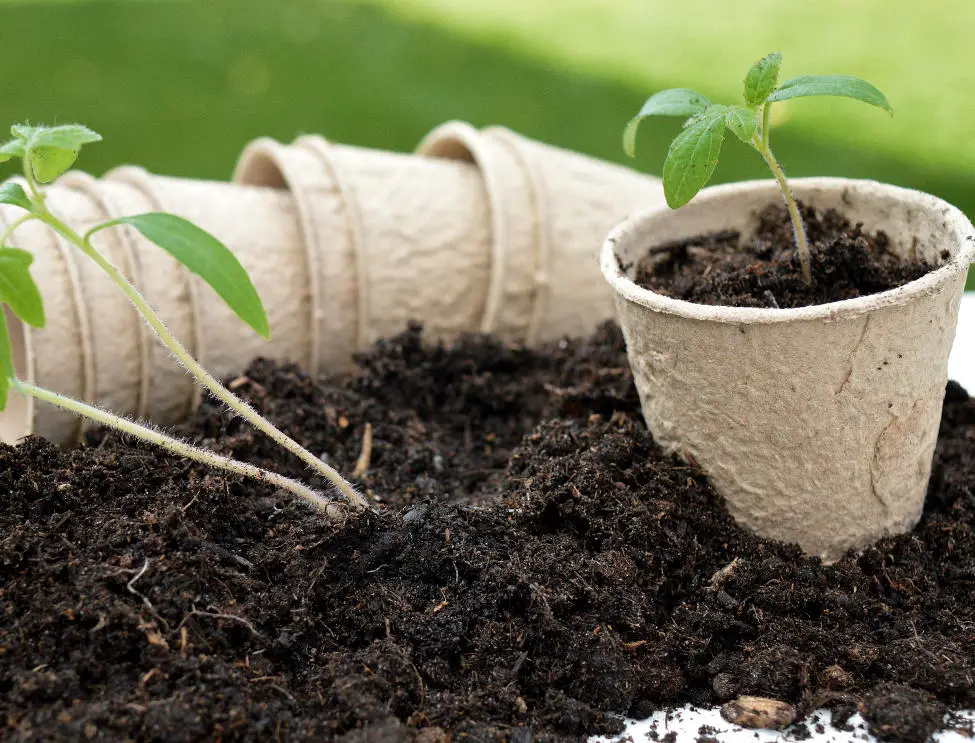Embracing Sustainable Gardening Practices
Embarking on a journey to grow your food is not just about cultivating a garden; it’s an opportunity to contribute to a healthier planet. One impactful way to do so is by rethinking the materials we use. In this guide, we’ll explore alternatives to using plastic in gardening, providing gardeners with eco-friendly options that not only nurture their plants but also support the well-being of the environment.
Introduction to the Plastic Problem
Understanding Plastic Impact:
- Plastic pollution poses environmental challenges.
- Reducing plastic use in gardening contributes to a sustainable lifestyle.
Before delving into alternatives, it’s essential to understand the environmental impact of plastic. Plastic pollution is a significant global concern, affecting ecosystems, wildlife, and human health. By minimizing plastic use in gardening, even at a beginner level, you contribute to the broader effort for a sustainable and eco-friendly lifestyle.
Eco-Friendly Pots and Containers
Biodegradable Options:
- Coconut coir pots.
- Peat pots.
- Bamboo fibre pots.
Traditional plastic pots contribute to landfill waste, but eco-friendly alternatives offer a solution. Coconut coir, peat, and bamboo fibre pots are biodegradable options that break down naturally over time, reducing the environmental footprint of your gardening endeavours.
Natural Fiber Mulch
Sustainable Mulching Choices:
- Straw.
- Shredded leaves.
- Grass clippings.
Mulching is a gardening practice that conserves soil moisture and suppresses weeds, but plastic mulch films are harmful to the environment. Opt for natural fibre mulches such as straw, shredded leaves, or grass clippings. These alternatives not only provide the same benefits but also decompose, enriching the soil in the process.
Wooden Garden Tools
Sustainable Tools for Tending Your Garden:
- Bamboo-handled tools.
- Wooden-handled tools.
Ditch plastic-handled garden tools for more sustainable options. Bamboo and wooden-handled tools are sturdy, durable, and eco-friendly. They also add a touch of natural aesthetics to your gardening experience.
Compostable Seed Starters
Seed Starting Without Plastic:
- Peat pellets.
- Newspaper seed pots.
Starting seeds in plastic trays is a common practice, but there are compostable alternatives. Peat pellets and newspaper seed pots are excellent choices. They can be directly planted into the soil, eliminating the need for plastic transplanting.
Natural Twine for Support
Supporting Your Plants Sustainably:
- Jute twine.
- Cotton twine.
Plastic ties and supports are often used in gardening, but natural twines provide a sustainable alternative. Jute or cotton twine is biodegradable and can be composted after use. They offer sturdy support for your growing plants without harming the environment.
Clay and Ceramic Planters
Timeless and Sustainable:
- Clay pots.
- Ceramic planters.
Plastic planters are prevalent, but clay and ceramic alternatives are not only aesthetically pleasing but also eco-friendly. They are durable, provide excellent insulation for plant roots, and, unlike plastic, are recyclable.
Fabric Grow Bags
Breathable and Reusable Options:
- Fabric grow bags.
Traditional plastic containers can restrict root growth and airflow, leading to unhealthy plants. Fabric grow bags are an excellent alternative. They are breathable, promote better drainage, and are reusable for multiple growing seasons.
Recycled and Upcycled Garden Art
Sustainable Decor for Your Garden:
- Upcycled containers.
- Recycled metal or glass art.
Plastic garden decor contributes to environmental pollution. Consider upcycling containers into creative planters or incorporating recycled metal or glass art pieces. Not only do these alternatives add a personal touch to your garden, but they also divert waste from landfills.
Reusable Watering Cans and Water Collection Systems
Conscious Watering Practices:
- Reusable watering cans.
- DIY rain barrels.
Plastic watering cans and disposable water bottles are common in gardens, but reusable alternatives exist. Invest in a durable watering can or create a DIY rain barrel to collect and utilize rainwater. These choices reduce dependence on single-use plastics and conserve water.
Cultivating a Greener Future
The choices you make in your garden can contribute significantly to a more sustainable and eco-friendly lifestyle. By opting for alternatives to plastic, you not only minimize your environmental impact but also create a thriving garden that aligns with the principles of responsible and mindful gardening. Embrace these eco-friendly alternatives, and let your journey into growing food at home be a positive force for a greener future.
